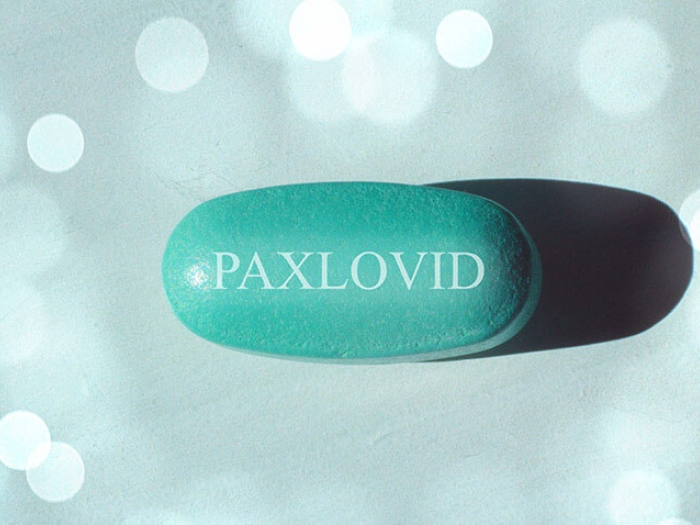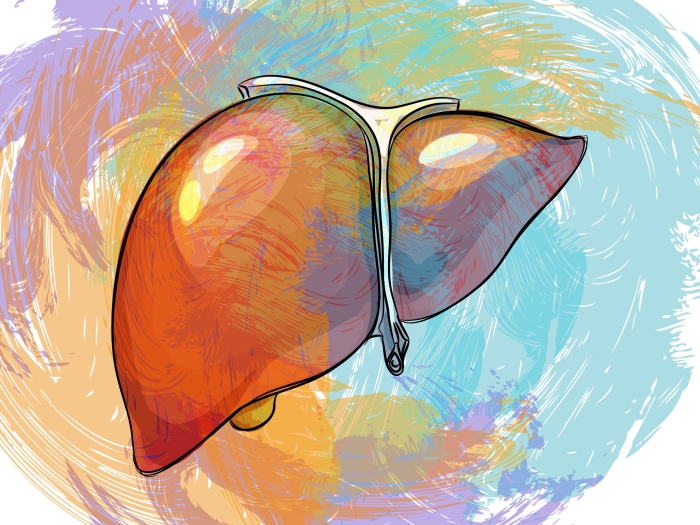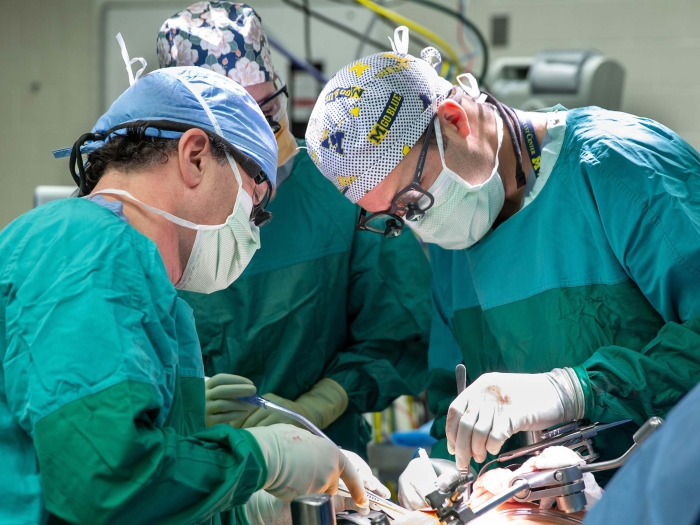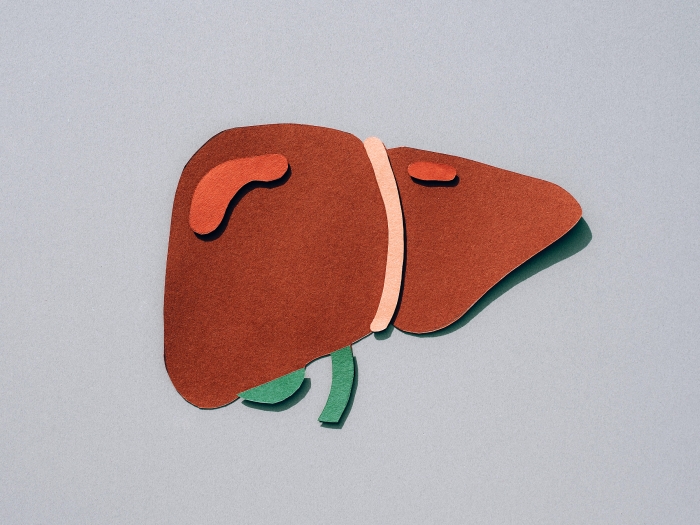Acute liver failure can occur suddenly in otherwise healthy people. How quick thinking and a timely transplant helped one woman survive.
7:00 AM
Author |
The symptoms came quickly and without warning.
After returning from a Florida vacation in April 2015, Ann Schofield began experiencing bouts of fatigue — which she first attributed to middle age and a vigorous weekend of tennis in the sun.
MORE FROM THE HEALTH BLOG: Subscribe to our weekly newsletter
Then, she noticed her urine had become "really dark, like a tea-orange color." But Schofield brushed that off, too. Perhaps it was caused by a beet salad or something else she ate.
Soon, a third sign of trouble: Schofield's body, her husband, Tom, says, was emitting a strange odor similar to ammonia. And her skin, meanwhile, was turning yellow.
"I didn't pay a whole lot of attention to it," says Schofield, 50, of Traverse City, Michigan. "I'm not a sick person."
Still, the symptoms prompted the couple to visit their primary care doctor, a local gastroenterologist and, ultimately, experts at the University of Michigan Health System.
A review of her complaints and a biopsy prompted a serious diagnosis — one that Schofield's healthful lifestyle and history might not have suggested: liver failure.
A transplant, she learned, offered the best chance of survival — and there was little time to wait.
Without recourse, "We would have had very serious concerns about whether she could have gone on another day or two," says Theodore Welling, M.D., an associate professor of surgery and a transplant surgeon at UMHS.
Lifesaving surgery
Despite a worsening condition that found Schofield in and out of consciousness upon her arrival in Ann Arbor, she refused at first to accept the proposed course of action.
"I had been saying all along I don't want a transplant," she says.
After consultation and prayer, the family opted to proceed. Schofield's status was so dire that she was placed on the top of the liver transplant waiting list.
A U-M team that included surgeons, hepatologists, neurologists and social workers helped evaluate and prepare Schofield for an optimal outcome. A former transplant recipient even came to share her own experience to provide comfort and perspective.
In what the patient in hindsight deemed "a miracle," the delay didn't last long: A phone call signaling a suitable match came about 48 hours later — at 1 a.m.
As suspected, the surgical team discovered that Schofield's liver was badly shrunken and beyond repair. The 3 1/2-hour transplant procedure nonetheless "went very smoothly," Welling says.
"The new liver had very good blood flow to it once we finished sewing it in," he says. "It had immediate function for her — obviously, the best result we could ask for."
Upon waking, Schofield was shocked to learn about the degenerative state of an organ that, until her admission, had never caused any trouble.
"Evidently it was dried up to just nothing, absolutely nothing; it was black," she says. "They can't even tell what happened."
Her doctors likened it to detecting the source of a house fire after the structure had burned to the ground.

A sudden decline
Unlike chronic liver failure, whose condition develops over months or years, the onset of acute liver failure is quick and often difficult to predict (a major culprit, Welling says, is Tylenol, which can be toxic to the liver when taken in excess).
SEE ALSO: Antibiotics and Liver Injury: What's the Risk?
Schofield, an active mother and athlete who had long avoided even basic over-the-counter medicines, was blindsided.
"Unfortunately, it's one of these things that can just strike without really much warning," says Welling. "There's not really something one can do to prevent this."
Hepatitis B is also a trigger, he says, but notes that most folks receive preventive vaccinations for the virus.
Still, no matter the cause, occurrence is rare. Only about 2 to 3 percent of liver transplants performed each year at UMHS are prompted by acute liver failure, Welling says.
But for those presenting such symptoms, the deadly risks can't be ignored.
Among the other body parts in jeopardy: the brain.
The reason: "The liver helps to detoxify elements in the blood; these toxins can build up and cause disorientation or problems with neurological function," Welling says. "There can be swelling of the brain that can lead to the catastrophe of brain death if this process is not reversed."
Although Schofield increasingly struggled to recall basic facts and answer questions in the days leading up to transplant, a direct result of her faulty liver, she has since regained total function.

A speedy recovery
To her doctors' delight, Schofield bounced back with flying colors.
Her operation, unlike other such cases, required no blood transfusions and no pain medications during recovery.
SEE ALSO: Singing the Praises of Organ Donation: A Vocalist's Story
She went home about five days after receiving a new liver — a testament to her prior health habits, quality hospital care and positive attitude.
"I can't say enough about the U-M doctors and nursing staff," Schofield says. "They went above and beyond anything I could have expected."
Beyond feeling good, the transformative power of her surgery was fast evident.
She has found a renewed zeal for the same recreational pursuits that include tennis, hiking, Spinning and walking her dog. Schofield notes that she's able to participate with the same intensity as before.
Life, she adds, is "incredibly manageable."
Like all transplant recipients, though, she will have to take anti-rejection medication indefinitely to prevent her body's immune system from attacking the new organ — a regimen that Welling notes can be "imperfect" with side effects and complications down the road.
"We consider this the new normal," says her husband, Tom. "Life has taken us in a new direction and we embrace that."
The family views the transplant (and its critical timing) as a true blessing.
They also acknowledge the bittersweet reason for her survival.
"My thoughts are always with the donor's family; they had to lose someone for me to live," she says. "My miracle was the worst day for their family. I will always keep that in my heart and mind — and be forever grateful."

Explore a variety of healthcare news & stories by visiting the Health Lab home page for more articles.

Department of Communication at Michigan Medicine
Want top health & research news weekly? Sign up for Health Lab’s newsletters today!





